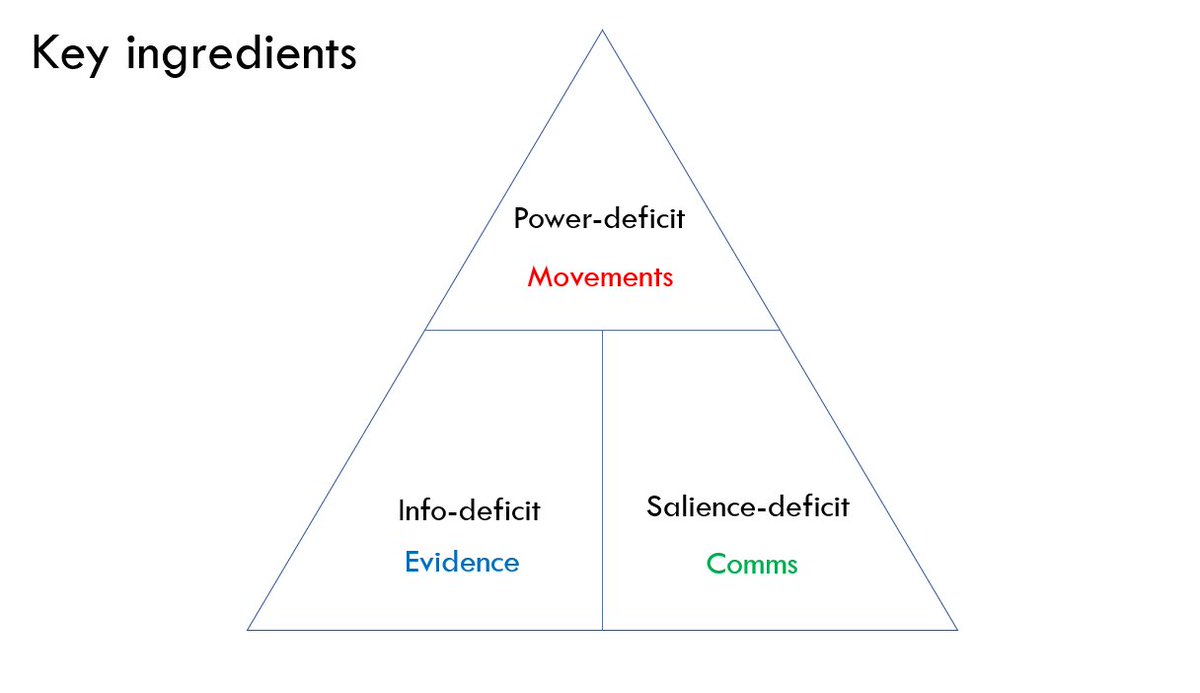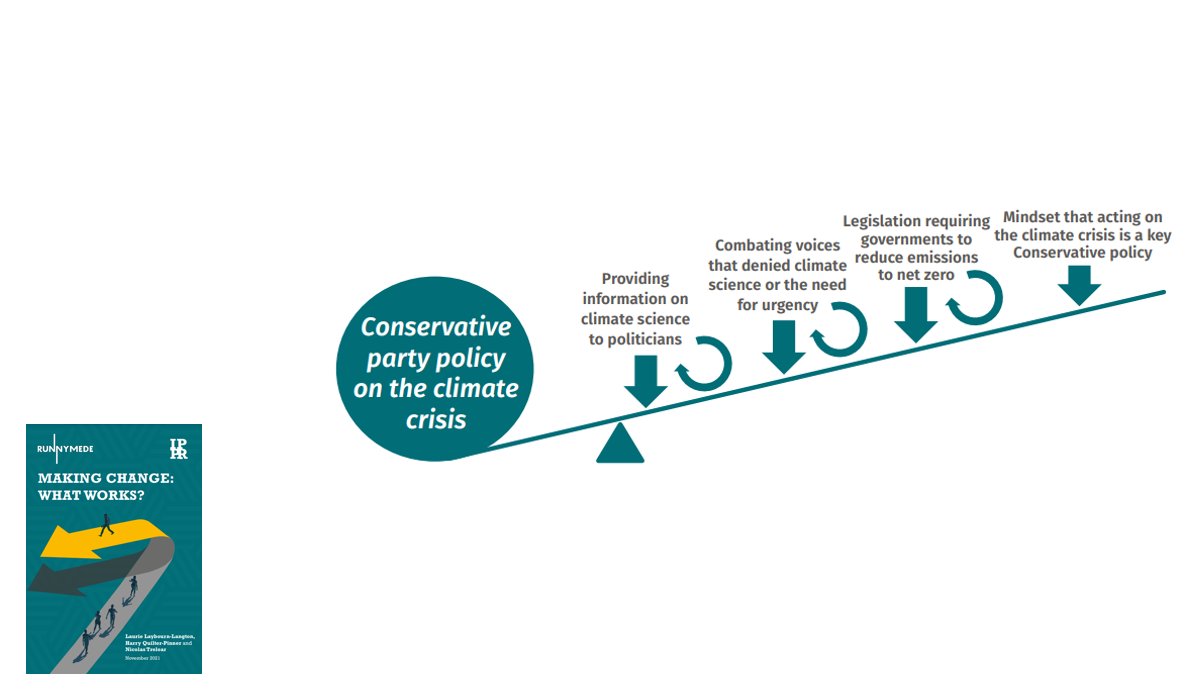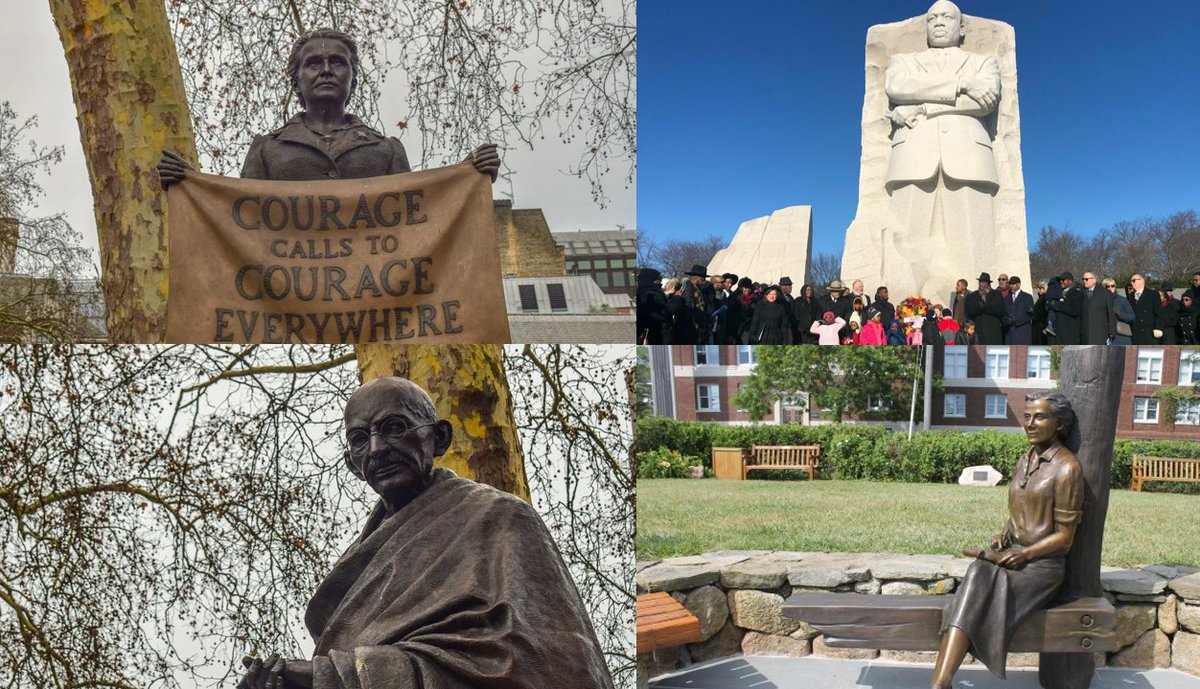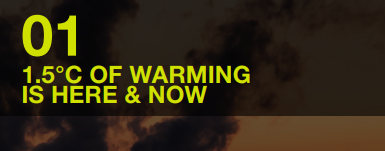Several people asked if I could share the slides from our #TippingPoints conference session. So I thought I'd put them up here too.
Thanks to all who took part. I look forward to working together to grow our understanding of social movements can accelerate tipping points🧵1/n
Thanks to all who took part. I look forward to working together to grow our understanding of social movements can accelerate tipping points🧵1/n

The importance of building powerful social movements with carefully targeted campaign goals came up repeatedly throughout the conference.... 2/n
https://twitter.com/ThierryAaron/status/1569395204876304384
Movements are a crucial to achieve social change, as it is not enough to just have evidence, or even to communicate it with compelling stories, you also need to build counter-power that can force change in the existing system 3/n 

Analysis by @IsakStoddard et al of why we have failed to even bend the emissions curve (despite over 30yrs of scientific warnings!) compellingly reveals the role of the power of vested interests in blocking action.
We need movements to overcome this! 4/n
annualreviews.org/doi/abs/10.114…
We need movements to overcome this! 4/n
annualreviews.org/doi/abs/10.114…

One way to see this power in action in the comms sector is to identify the discourses of climate delay that are prevalent in much of the mainstream debate on #climate.
A paper by @lamb_wf et al helps us identify such discourses:
cambridge.org/core/journals/…
5/n
h/t @leolinne
A paper by @lamb_wf et al helps us identify such discourses:
cambridge.org/core/journals/…
5/n
h/t @leolinne

The latest @IPCC_CH WG3 report on mitigation is clear that we have *high confidence* that "collective action as part of social or lifestyle movements underpins system change"! 6/n 

Recent reviews are clear that social movements play a key role:
Thiri et al - How social movements contribute to staying within the global carbon budget sciencedirect.com/science/articl…
Temper et al- Movements shaping climate futures
iopscience.iop.org/article/10.108… 7/n
Thiri et al - How social movements contribute to staying within the global carbon budget sciencedirect.com/science/articl…
Temper et al- Movements shaping climate futures
iopscience.iop.org/article/10.108… 7/n

Why are we talking about this at a #TippingPoints conference?
Because social movements are necessary to access the deeper leverage points necessary for tipping social systems (check out Donella Meadows!)
drbalcom.pbworks.com/w/file/fetch/3…
8/n h/t @futuresforensic
Because social movements are necessary to access the deeper leverage points necessary for tipping social systems (check out Donella Meadows!)
drbalcom.pbworks.com/w/file/fetch/3…
8/n h/t @futuresforensic

There's a neat example of how this model can be applied in the @IPPR & @RunnymedeTrust report on making change happen by @Laurie_L_L et al -
ippr.org/research/publi… 9/n
ippr.org/research/publi… 9/n

But what are social movements? It's a concept that's quite hard to define- a useful way to think of it as an ecosystem of change with lots of niches to fill!
Thanks @NEON_UK for introducing me to this way of thinking! I really recommend this course:
neweconomyorganisers.org/training/movem… 10/n
Thanks @NEON_UK for introducing me to this way of thinking! I really recommend this course:
neweconomyorganisers.org/training/movem… 10/n

We only need to look to history to see the key role social movements have played!
But we must be wise to the distortion in the stories that are now told - these were hard won struggles in the face of fierce opposition. Those we remember as heroes were once seen as villains 11/n
But we must be wise to the distortion in the stories that are now told - these were hard won struggles in the face of fierce opposition. Those we remember as heroes were once seen as villains 11/n

We must also reject misleading narratives of a 'great-man' view of history. These movements were won by millions of ordinary people self-organising and taking action in many different ways, we can all help lead the way! 12/n
In summary, social movements can tend to be identified as possessing these characteristics.
Key questions for research right now include:
- How to grow such movements?
- How can they be resourced?
- How can there be better collaboration?
- What are key strategic demands?
/End
Key questions for research right now include:
- How to grow such movements?
- How can they be resourced?
- How can there be better collaboration?
- What are key strategic demands?
/End

• • •
Missing some Tweet in this thread? You can try to
force a refresh





















